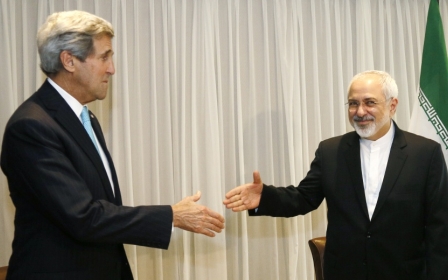Iran MPs rail against Rouhani's new UN envoy, seen as too close to US

Conservatives inside Iran have protested over the President Rouhani’s choice of a new envoy to the UN, who they say is too close to the US.
Gholamali Khoshrou, a career diplomat close to reformist former president Mohammed Khatami, was named as the new Iranian envoy to the UN on Wednesday.
Khoshrou’s appointment came 10 months after controversy over the previous candidate stirred tension between the US and Iran at a sensitive time, as protracted negotiations over Iran’s nuclear activities continued.
President Hassan Rouhani previously selected Hamid Abutalebi to represent Iran at the UN, whose headquarters are in New York.
However, the US refused to grant Abutalebi a visa, accusing him of involvement in the 1979-81 hostage crisis, in which a group of Iranian students held dozens of US diplomats and citizens hostage at the US embassy in Tehran for 444 days.
Rouhani’s government initially stood behind Abutalebi, saying that he had been a translator at the time and had had no links with the hostage-takers, who were a group supportive of the 1979 Islamic Revolution in Iran.
When the fresh diplomatic crisis between the US and Iran erupted in April 2014, Iranian Foreign Ministry officials said they had no alternative candidate for the post of envoy to the UN, and would pursue the matter within the UN.
“Based on an agreement with the United Nations, America is bound to act according to its international commitments,” Abbas Araghchi was quoted by Iran’s official news agency as saying at the time.
Ten months later, and Rouhani’s decision to put forward another candidate has sparked criticism from conservatives. A source who spoke to London-based news site al-Araby al-Jadeed said “the climb-down from appointing Abutalebi means that the will of the US has been realised. It is constantly putting pressure on Tehran.”
Iranian and US officials reportedly discussed the appointment of Khoshrou, who holds degrees from Iranian and US universities and previously served as Iran’s representative at the UN from 1989 to 1995, before the official announcement.
Western diplomats told Reuters on Wednesday that they expected Khoshrou to get a US visa, allowing him to take up the post.
As the diplomat has already worked in the US, Washington has already been able to conduct a background check and ensure that Khoshrou has no links to the group that took the hostages three decades ago, the sources said.
In Iran, conservative politicians opposed to cautiously reformist President Rouhani accused him of trying to push forward the nuclear negotiations “at any cost”.
Zahra Tabib Zadeh, a member of Iran’s parliament, told Fars news agency that “the policies of Rouhani’s government are extremely pliable. The aim is to push towards a result at the nuclear talks, whatever the cost.”
Zadeh said the decision to reappoint a new Iranian envoy to the UN was an “insult to Iran".
“Washington has no right to impose conditions and meddle in Iran’s internal affairs.”
Khoshrou, who has spoken out about the importance of dialogue between East and West, was close to Iran’s nuclear negotiations when he worked under former President Khatami, and has also served as deputy foreign minister.
Iran and the US are seeking a long-term deal that would see Iran curtail its controversial nuclear activities in return for an easing of the sanctions that have stifled the country’s economy since the 1979 Islamic Revolution.
This month both parties agreed to intensify efforts to reach “political understanding” by March this year in the hope of brokering a final deal by the self-imposed deadline of 30 June 2015.
The US Senate’s Banking Committee on Thursday advanced a bill that would see sanctions against Iran tightened further if a satisfactory deal is not agreed by the end of June.
Stay informed with MEE's newsletters
Sign up to get the latest alerts, insights and analysis, starting with Turkey Unpacked
Middle East Eye delivers independent and unrivalled coverage and analysis of the Middle East, North Africa and beyond. To learn more about republishing this content and the associated fees, please fill out this form. More about MEE can be found here.




